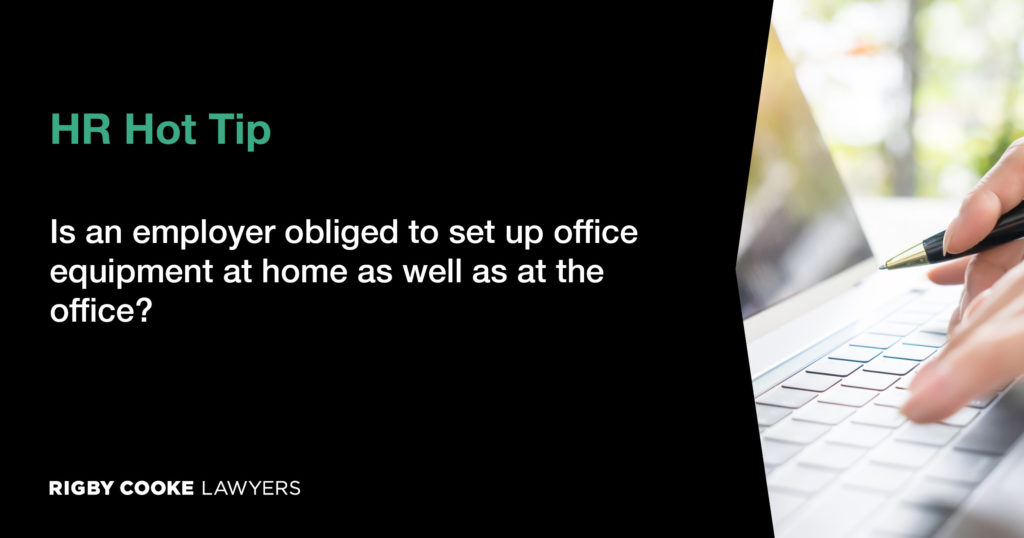Welcome to our series of HR interviews with Associate Stephanie Shahine, who answers some of the most common questions asked by HR managers regarding employees’ legal entitlements and employers’ health and safety requirements, especially as business begins to transition back into the office.
As many employees want to continue to work from home and/or are required to comply with working from home obligations per Public Health Orders, the question arises, is it the employer’s obligation to provide office equipment for the employee’s home office?
Under the Workplace Health and Safety laws, an employer has a duty of care for the health and safety of its employees, this includes scenarios where employees are working from home.
Employees also have a duty of care to look after their own health and safety, including while working from home. This means that both the employer and employee share the responsibility of ensuring a safe and functional workstation set up and identifying and managing any risks to the employee. Risks can be identified and managed by conducting a risk assessment with the employee.
Some employers may be able to allow employees to borrow equipment from the workplace or reimburse them reasonable costs for purchasing any required equipment. In consultation with employees, there must be a discussion to determine what equipment may be required to ensure that work is carried out safely. Employers must provide employees with assistance to ensure that those obligations are met.
If the employer is not satisfied that a safe workstation can be created, it may not be practicable for the worker to work from home long-term. In this instance, alternative arrangements may need to be made. This could include a safe office space being created in the office and flexible working hours to minimise contact between workers and ensure that there is adequate physical distancing to comply with any Public Health Order.
Employers need to familiarise themselves with and understand their legal obligations to avoid any possible claims by employees (both existing and former), as well as prosecution by the Fair Work Ombudsman or Safe Work Australia.
Employers are obligated to provide a safe and risk free working environment for all employees, as far as is reasonably practicable, both in the workplace and while they are working from home. Employers should ensure they are adhering to the Fair Work Act 2009 (Cth) and the Occupational Health and Safety Regulations 2017, to fulfill their obligations.
A HR Legal Audit conducted by Rigby Cooke’s Workplace Relations team can provide the HR function and, in turn, provide employers with comfort in knowing that they are legally compliant, or at least provide advance warning of any potential compliancy issues before they become problematic.
| Disclaimer: This publication contains comments of a general nature only and is provided as an information service. It is not intended to be relied upon as, nor is it a substitute for specific professional advice. No responsibility can be accepted by Rigby Cooke Lawyers or the authors for loss occasioned to any person doing anything as a result of any material in this publication.
Liability limited by a scheme approved under Professional Standards Legislation. ©2021 Rigby Cooke Lawyers |

